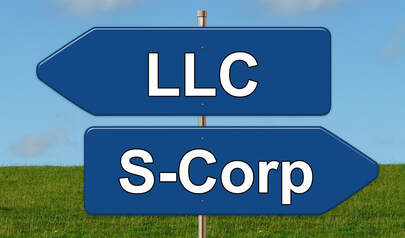AuthorMichelle is the founder and owner of STL Bookkeeping & Tax (formerly MRW Accounting Solutions) in St. Louis, MO. She has a BS in Accounting and 10+ years of business experience in and around the STL area. Archives
April 2019
Categories |
Back to Blog
wHAT IS BOOKKEEPING?!3/21/2019  So what IS bookkeeping anyway? Dictionary.com defines bookkeeping as, "the activity or occupation of keeping records of the financial affairs of a business". There are a lot of different ways this activity of record keeping can be achieved. Some people use paper and pencil, excel spreadsheets, boxes of receipts under the bed, memory (we don't suggest this), and probably the most common QuickBooks. Bookkeeping is a way to keep all business expenses in one place, organized and classified, and see the financial health of the business. Each transaction that a business has, be it income, check purchase, credit card purchase, etc. is classified accordingly. These categories include things such as rent, office supplies, utilities, and cost of goods sold. One of the main things that all these classifications are used for is tax preparation. Entering this information into QuickBooks will give you the totals for all of these categories. Beyond tax preparation, the two most common statements produced by accounting software are the income statement (profit & loss) and the balance sheet. The income statement shows the profitability of a business for a certain time frame, so essentially income minus expenses. The balance sheet is a bit more complicated and shows all areas of the business finances including (but not limited to) bank accounts, credit card balances, accounts receivable, accounts payable, inventory, shareholder distributions, and miscellaneous assets and liabilities. Bookkeeping is important because it gives you the ability to see all of your business finances in one place. If you're waiting til the end of the year to total income and expenses, you may be shocked at how much money your small-business actually made because you were just spending everything that came in. Additionally, keeping accurate records ensures you are not missing any deductions to which you are entitled. If you're charging some money to multiple personal credit cards, some to your personal bank account, some to your business bank account, and some cash..how could you possibly be sure you've captured everything at the end of the year? Beyond that, if you do not have good records in place you could find yourself in a bad situation should you find yourself in an IRS audit. If this all sounds overwhelming, luckily for you, this is what STL Bookkeeping & Tax manages for small businesses on a daily basis. Our bookkeeping packages come with a QuickBooks Online subscription included, and help you start to make sense of your business financials. If you'd like to hear more, or talk about your specific situation, please send a message or call 314-450-1140. I would love to talk to you and help you stress less about your bookkeeping! -Michelle Walsh
3 Comments
Read More
Back to Blog
Requirements to be an s-corp3/12/2019  "Michelle, my grandma, mom, hair dresser, postman, administrative assistant, flight attendant, dentist, etc, etc, etc. told me I should be an S-Corp to save on taxes. Why haven't we done this?!?!" The above is one of the most common questions I get from small business owners, and the simple answer is, "because you're not an S-Corp". However, let me break this down for you a little further: And S-Corp is a pass-through entity that passes profits down to its shareholders. The tax savings come in that those pass-through profits are not subject to self-employment tax (social security and medicare, approximately 15%). If you are a single-member LLC or sole proprietor, it is very rare you will meet the qualifications of an S-Corporation. It is time to start thinking about becoming an S-Corp when you hire your first employee or hire a contractor who is bringing in income for your business. This may also be true for network marketers who make income from "downlines". At this point, you are no longer the only person making profits for the company and so all profits should not be subject to self-employment tax. I'll use a landscaping company as an example. As soon as a landscaper can afford to hire an employee, let's say he pays him/her $15/hour. The customer paid $1000 for the services and the employee worked for 5 hours. In this scenario, the labor cost was $75, let's say materials were $500, and the profits were $425. For an S-Corp, these profits, brought in by an employee would be considered pass-through income not subject to self-employment tax. *Note, this is strictly for example purposes and there are more factors that would need to be considered for tax purposes. You may be asking yourself how you pay self-employment taxes as an S-Corp and the answer is through a W2. When you make the decision to become an S-Corp, you become an employee of the corporation, as well as a shareholder. Now, of course, the question of how much to pay a shareholder in the form of a W2 comes into play. The simple answer is, you should pay yourself through W2 wages what you would pay someone else to do your job. Only the wages on your W2 are subject to social security and medicare taxes and the rest of the business profits "pass through" to your (and your business partners') individual tax return and are only subject to federal, state, and local income taxes. As you can see, there is more to becoming an S-Corp than just tax savings. If the IRS audits your S-Corp return and you do not have W2 wages, or do not have enough W2 wages, they can reclassify the business profits causing you to be on the hook for additional taxes and penalties. In addition, something I remind my clients is, if you do everything you can to avoid paying any social security an medicare tax during your working life....you may not be eligible for social security when you're of age, you have to pay into these programs to get anything out. This means, if you don't have a retirement plan in place outside of social security, and you avoid paying social security taxes during your working life, you could be working for a very long time. If you believe you are an S-Corp, I can help you file the appropriate paperwork with the IRS and start reaping the tax saving benefits even for 2018's tax filing! Please contact me at [email protected] or 314-450-1140 to discuss more. |
 RSS Feed
RSS Feed
